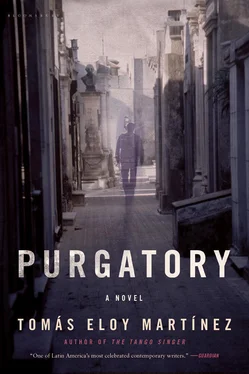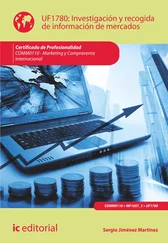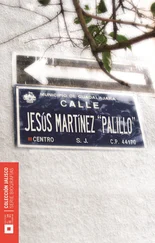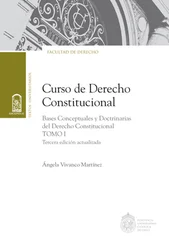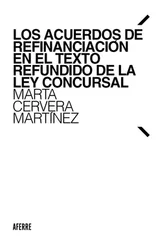Chela found it difficult to accept this transformation in her husband. She too had changed. She was fat, she permanently carried around a box of chocolates and she would go for days without taking a bath, putting on make-up or even looking at herself in the mirror. She was still breastfeeding and her huge breasts spilled out of her nightdress. She was three years younger than Emilia but now she looked older; she even began to get grey hairs which she forgot to dye. At the height of her bitterness, she told Emilia that she spent nights lying awake, waiting for her husband, the baby in her arms, while he sat up, yoked to the calculator, the telephone and the teletype machines.
‘I take him to Mass with me on Sundays,’ she told Emilia, ‘and he rushes out of the church afterwards to find out the exchange rate of the dollar against the yen. I wear the baby-doll nightdress I couldn’t wear while I was pregnant and he just goes to sleep, can you believe it? He doesn’t even wake when the baby is squalling, never picks him up, and I don’t think he’s having an affair, because he doesn’t even have time for that.’
In a few short months, the little bank which Marcelo Echarri bought blossomed, buying up agricultural cooperatives, empty factories and shares in businesses that existed only as a letterhead: it was a lavish graveyard peopled with the dead that no one wanted. The Echarri empire — as the magazines called it — rose like the villages Potemkin built for the tsarina as she travelled through the Crimea only to vanish as soon as her carriage had passed.
Everything was happening too quickly. His wealth was colossal, but existed only on paper. To escape the firestorm would require an act of daring. He looked for short-term investors prepared to entrust their modest fortunes to banks that promised the best interest rates, and his were the highest. Inevitably, the moment came when he could not pay them. The more people deposited the deeper he sank into this dirty business. Bankruptcy loomed, but still he was not prepared to give up. He had never failed and did not see why he should fail now. After a sleepless night plotting and scheming, he happened on what he thought was a providential solution. Rather than paying the monstrous interest rates demanded of them, his frontmen invested the reserves in banks which offered more realistic interest rates. He had two or three million pesos invested for a fixed term in Philadelphia, where he had lived during his carefree student days, but he had no intention of touching it. This money was his shield, his safeguard for the future. But the future was now moving away and rather than coming towards the present, as Bradley’s Metaphysics proposed, it was disappearing. Whichever way he turned, Marcelo could see no future. The future, like the money, had run dry.
He could not sleep for worrying. ‘If you carry on like this, you’ll give yourself a heart attack,’ Chela said to him. ‘Why don’t you talk to Papá ?’
‘No, your father gave me some advice. He said: “You’ve got to play this like a game of chess, Marcelo. Before you attack, think about how you’re going to defend yourself. Nobody’s going to sit in your seat and play the game for you.” ’ He had followed this advice and sunk ever deeper. He bought a second foundering bank and opened up branches in the provinces to attract new deposits. In every branch, he had a motto engraved in Latin which cashiers translated for customers: Fac recte nil time : Do right, fear nothing. For the first few weeks everything went well. Customers entrusted their savings to him because the word bank inspired confidence. But when they returned to withdraw their funds, they found the doors closed, or they were sent away by the security guards with implausible excuses: we’re waiting for funds from another branch, it will all be sorted by 9 a.m. tomorrow morning, go home, don’t worry, don’t believe the rumours, your money is safer here than with the Pope in Rome. It sounded like mockery, because at the time, the Pope in Rome was on his deathbed and the Vatican Bank itself was foundering.
Marcelo had no lack of imagination, but now he lacked the funds to use it. He considered laundering money through the drug dealers who were beginning to flood in from Colombia and Mexico, but he knew that if he got into debt with them and did not pay up promptly he would be signing his own death warrant. ‘I can’t take the risk,’ he said to Chela. ‘I haven’t got the guts to leave you a widow, all alone with the baby.’ ‘You need to talk to Papá ,’ his wife insisted. ‘How many time do I have to tell you?’ For several days, Marcelo hesitated, but finally decided to do so when thousands of furious investors staged a demonstration outside his bank, smashing windows and furniture, stealing telephones, forged paintings and typewriters. His debts amounted to more than two hundred million pesos.
He invited Dr Dupuy to the Jockey Club, where they were able to lunch away from indiscreet witnesses. In plain language he explained the hopeless situation he found himself in, employing all the rhetorical devices for compassion he knew while his father-in-law did not move a muscle.
Dupuy listened, impassive. He shot Marcelo a bleak look and sat for a moment in silence, devoting his attention to the shrimp cocktail the waiter had just brought.
Marcelo was about to take out a photograph of his son, Dupuy’s only grandson, prepared himself to shed tears if necessary, but in the end he did not have to lower himself to such stratagems.
‘How are we going to write up the story for La República , Marcelo? What possible explanation can we give, when there is none? How are my readers, the good men who have trusted me their whole lives, going to go on trusting me?’ At no point did Dupuy raise his voice, yet his voice boomed as though it filled the heavens. ‘They won’t understand why I gave you a position of such responsibility at the paper when you’re a piece of shit who couldn’t even see what was coming. They’ll ask why I didn’t warn you. How can I tell them that I did warn you, that I gave you more time than anyone else had, and that you were stupid enough not to listen to me?’
Marcelo was trembling. This was no time to apologise; all the while he had felt he had not put a foot wrong, and now he discovered that his one mistake, the one which a whole lifetime would not suffice to excuse, was not to have heeded the infallible voice of his father-in-law.
‘It’s not just a few banks that are failing,’ Dupuy said, ‘the whole system is falling apart, foreign credit has dried up and now the country is being asked to pay its debts. Even if I wanted to — and I don’t want to, I can’t — how would it look if I asked for you to be thrown a lifeline when the Titanic is going down?’
Marcelo’s voice faltered; he felt on the brink of tears. ‘So what do you advise me to do?’
‘Leave the country. And before you go, think about how to preserve your good name. Though it pains me to say so, it is my grandson’s name too.’
‘I’ve been thinking about that. I was going to ask for an audit, a financial inspection, but I don’t have time to doctor the figures and delete the fraudulent transactions. As soon as the auditors look at it, they’ll know my only way out is to get the state to cover my debts. I could speak to the comandantes , but if, as you say, the whole ship is going down, my hands are tied.’
‘Tied? You’ll be lucky not to have your hands cut off. The comandantes aren’t going to put themselves on the line for anyone. They’re gouging each other’s eyes out as it is. Will the books stand up to a slightly underhand audit?’
‘No. Anywhere they look there are papers implicating me.’
Читать дальше
